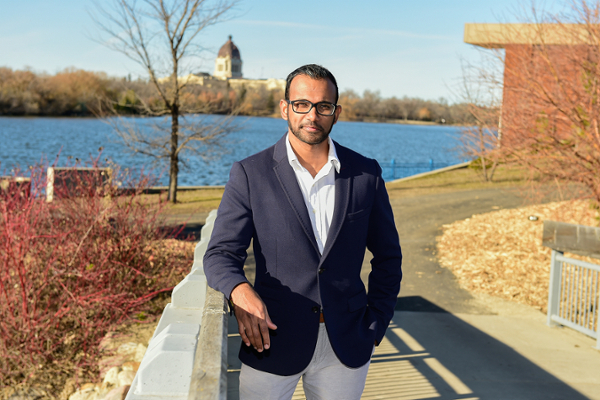
U of R researcher awarded more than $500,000 to develop long-term digital health solution for Indigenous communities
During the first wave of the COVID-19 pandemic, northern Indigenous communities in Saskatchewan experienced a rapid surge of COVID-19 cases while the rest of the province showed signs of recovery. This was a stark indication that outbreaks in remote Indigenous communities differed from larger population centres, revealing the urgent need for health innovations in these communities.
By By: University of Regina, Advancement and CommunicationsDuring the first wave of the COVID-19 pandemic, northern Indigenous communities in Saskatchewan experienced a rapid surge of COVID-19 cases while the rest of the province showed signs of recovery. This was a stark indication that outbreaks in remote Indigenous communities differed from larger population centres, revealing the urgent need for health innovations in these communities.
With the support of the federal government, through the Canadian Institutes of Health Research (CIHR) Project Grant, Dr. Tarun Katapally has been awarded $554,434 over three years for just such an innovation. His project, CO-Away: Implementation and Evaluation of Digital Health Solutions for Indigenous Self-Determination, Governance, and Data Sovereignty, is a digital health platform that will allow for data-driven, rapid responses to health crises.
“The CO-Away platform consists of two key components – a front-end, virtual-care, smartphone application (app), and a back-end, digital decision-making dashboard,” says Katapally, who adds that his team developed the CO-Away digital platform in early 2020 with funding from Mitacs.
Katapally, a patient-oriented research leader and associate professor at the Johnson Shoyama School of Public Policy, is working with the Métis jurisdiction of Île-à-la-Crosse, Saskatchewan, a sub-arctic community in northwest Saskatchewan. Dr. Malcolm King, professor in the Community Health and Epidemiology Department at the University of Saskatchewan, and Dr. Kelly Skinner, assistant professor at the School of Public Health and Health Systems at the University of Waterloo are also contributing to the project.
Katapally says that while CO-Away has been developed to rapidly respond to the COVID-19 pandemic, the digital infrastructure will also be used for emerging or other existing population health crises within Indigenous communities, and beyond.
“This new CIHR funding will allow us to expand the original idea to address a broad range of health issues, such as mental health concerns, substance misuse, and domestic violence, as well as addressing both communicable and non-communicable diseases.”
Katapally says his team is creating the CO-Away app to be scalable and adaptable. They are currently testing the prototype.
“The platform has two primary features – virtual doctor and citizen reporter,” says Katapally. “The virtual doctor engages with each citizen as soon as they download the CO-Away app to their smartphones and creates a risk profile – either low, moderate, or high. Based on that data, the platform then uses a cutting-edge artificial intelligence algorithm that allows the virtual doctor to engage with each citizen and help them assess the risk of contracting COVID-19.”
The primary purpose of the citizen reporter feature is to provide a culturally-responsive digital platform for Indigenous community members, allowing them to voice their concerns, issues, and problems.
These culturally-responsive features have been co-created with Île-à-la-Crosse Métis decision-makers based on imminent community needs and preferences.
“The purpose of CO-Away is to serve Indigenous communities and enable Indigenous data sovereignty – a key for self-determination and governance,” says Katapally.
Dr. Kathy McNutt, Vice-President (Research) at the University of Regina, says that the CO-Away virtual platform will allow Indigenous communities to quickly assess health risks and make evidence-based health decisions at both the individual and community level.
“This app will provide communities with a powerful tool that allows for precision real-time medical services, the promotion of healthy behaviours, and will ultimately help community leaders to make informed decisions about the health and well-being of their community members.”

